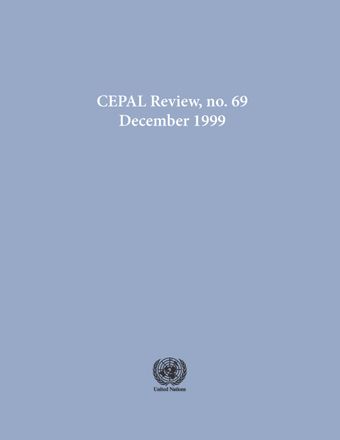-
International financial reform: The broad agenda
- Source: CEPAL Review, Volume 1999, Issue 69, Dec 1999, p. 7 - 30
- Spanish
-
- 04 Dec 1999
- Previous Article
- Table of Contents
- Next Article
Abstract
This paper argues that the agenda for international financial reform must be broadened in at least two senses. First of all, it should go beyond the issues of financial crisis prevention and resolution, to those associated with development finance for poor and small countries and to the “ownership” of economic and development policies by countries. Secondly, it should consider not only the role of world institutions but also of regional arrangements and the explicit definition of areas where national autonomy should be maintained. These issues should be tabled in a representative, balanced negotiation process capable of overcoming some of the adverse political economy features that characterize the current debate. After some initial considerations of the nature of the problems that the current system faces and some political economy aspects, the author addresses the following issues: i) the reforms relating to the prevention and resolution of financial crises; ii) the role of development finance, including the use of multilateral development finance to support increased participation of low-income and small middle-income countries in private capital markets and the financing of social safety nets during crises; iii) the need to reach a renewed international agreement on the limits of conditionality and full recognition of the central role of the “ownership” of development and macroeconomic policies by developing countries; iv) the role of regional and subregional institutions in increasing the supply of “global public goods” and other services in the area of international finance; and v) the need to maintain several realms of national autonomy, including capital account regulation and the choice of exchange rate regimes. The author argues that regional institutions and national autonomy are particularly important for the smaller players in the international arena, who would gain significantly from competition in the services provided to them and from the maintenance of freedom of action in a context of imperfect supply of global public goods.





